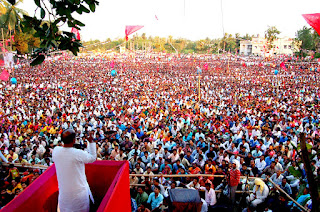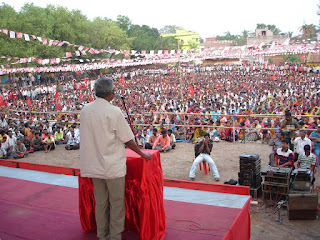KOLKATA, 17th May,2011: Referring to the Trinamool Congress' slogan of “change, but not revenge” in the run-up to the West Bengal Assembly elections, Biman Basu, Chairman of the State Left Front Committee, cited various incidents of attacks on the supporters of Left parties since the announcement of the results on May 13 and said here on Tuesday that the Trinamool had failed to keep its word.
“The manner in which these incidents are occurring is far removed from the rhetoric of the leaders of the Trinamool Congress,” Mr. Basu said.
He also alleged that workers of the Trinamool are planting weapons in party offices and homes of local leaders of the Left parties which is the reason for the large haul of arms that have been recovered over the past few days.
He chaired a meeting of the Left Front during the day which followed a meeting of the State Committee of the Communist Party of India (Marxist).
According to a press release, at the CPI (M) State Committee meeting, Mr. Basu, who is also the party's State Secretary, said even though the number of votes polled by the Left Front had increased since the 2009 Lok Sabha elections, its vote share had declined.
“A large number of people had participated in the Left Front's campaign for the Assembly elections. More and more people attended the rallies, procession and other programmes organised by the Left Front. Based on this, it had been estimated that it will be possible to form the eighth Left Front government. That has not been achieved,” Mr. Basu said, adding that the reasons for it will be examined in full.
On being asked about the comments of senior CPI(M) leader Abdur Razzak Molla on the defeat of party heavyweights, including Buddhadeb Bhattacharjee and Nirupam Sen, Mr. Basu said: “We do not supports his remarks.”
Mr. Molla was reportedly censured at the meeting for his comments.
Leader of Opposition
Mr. Bose denied that any discussion had been held so far on nominating the Leader of the Opposition, stating that it would be done only “after the new government has been formed.”
He also said that the Left parties had “strongly protested” the Centre's inability to tackle escalating prices and proposals to further increase fuel prices and said that a protest rally will be organised in Kolkata by the end of the month.























